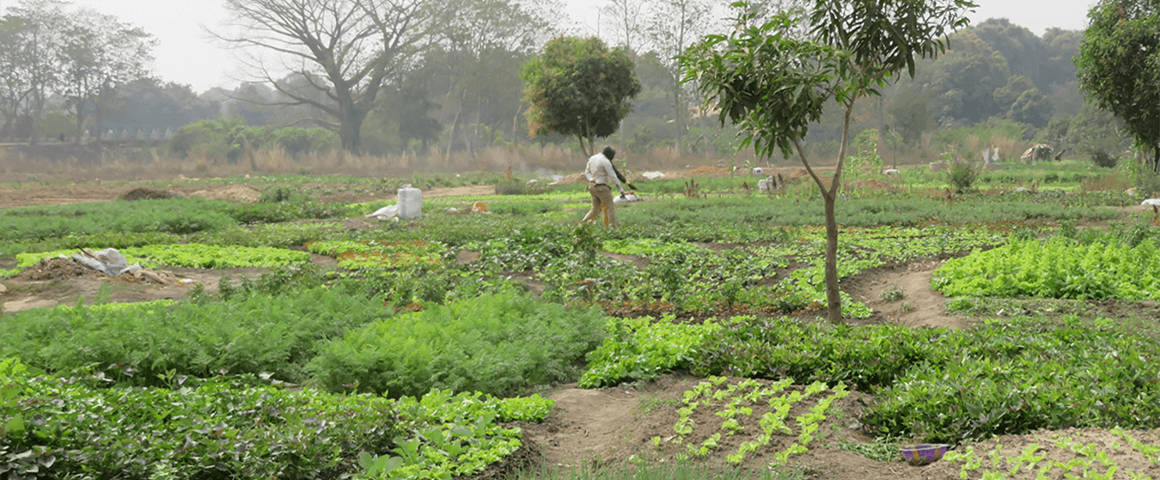- Home
- Worldwide
- CIRAD worldwide
- Projects
- ACOTAF Project
Strengthening agricultural advisory systems in support of the agroecological transitions of family farming in sub-Saharan Africa - ACOTAF

Market garden crops in the urban zone of Faranah (Guinea): one of the most dynamic sectors for agoecological transition in Africa© P. Djamen, CIRAD
Issues
The agricultural advisory service is one of the back-up services that is essential for agroecological transitions to ensure the sustainability of agricultural systems in sub-Saharan Africa. Patterned for a long time on the productivist model of the green revolution based, among other things, on synthetic input use, it needs to be renewed in terms of content and methods, tools and stances. The current experiences of agricultural advisory participation in agroecological transitions can provide the basis for steering that renewal. However, those experiences have yet to be capitalized on in any real sense and their technical attainments, both methodological and organizational, are rarely shared. It is above all necessary to ensure capacity building for those involved in providing advice, the supply chains and territories, so that they can actively contribute to its renewal, in phase with agroecological transition.
Description
Based on diagnostic studies on a country scale, capitalization on some original initiatives and thematic studies (gender, work requirements, digital tools), ACOTAF produces knowledge on how agroecology is taken into account by the integrated agricultural advisory systems. That knowledge is shared with agricultural advisory and agroecology stakeholders, at local, national and regional level, through different media and events. ACOTAF facilitates knowledge use in the processes of elaborating or strengthening initiatives and the strategic and operational planning tools of the agricultural advisory service. The project backs up the deployment of “Rescar-AOC” as the regional platform for knowledge management, development of synergies between programmes and capacity building for advisory service actors in West and central Africa.
Expected changes
Knowledge will be produced on the attainments, needs and processes for improving the response capacities of the agricultural advisory service, in its plurality, faced with agroecological transitions. Knowledge management will provide a basis for planning the capacity building of the agricultural advisory service at individual, organizational and institutional level. The dialogues stimulated by ACOTAF on different scales (supply chain, local, national and regional territory) will lead on to new advisory initiatives and strategies, and to stronger synergies between programmes working for ecological transition. Through the strengthening of “Rescar-AOC”, dialogues with public decision-makers (States, ECOWAS, international donors, etc.) and stakeholders in the agricultural world, ACOTAF also seeks to ensure the perpetuation and amplification of the dynamics that its intervention will have created for renewal of the agricultural advisory service.























